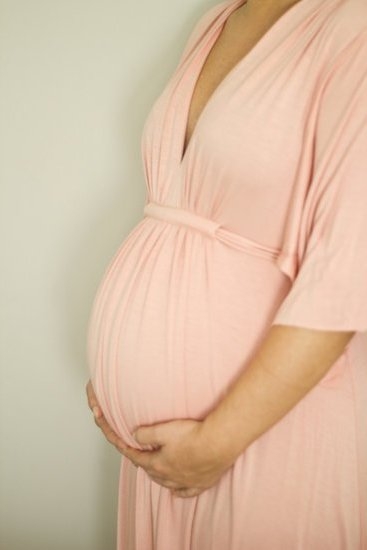Ectopic pregnancy occurs when a fertilized egg implants and grows outside the main cavity of the uterus. This section will delve into the various factors that can lead to ectopic pregnancy and shed light on why it occurs.
Ectopic pregnancy is a serious and potentially life-threatening condition that requires medical attention. Understanding the basics of ectopic pregnancy, including its definition and common symptoms, is crucial for early detection and prompt treatment.
One of the key factors that can cause ectopic pregnancy is abnormalities in the fallopian tubes, such as scarring or inflammation. These issues can interfere with the movement of a fertilized egg toward the uterus, leading to implantation in the fallopian tube or another location outside the uterus.
Additionally, hormonal imbalances, reproductive health history, pelvic inflammatory disease, birth control methods, and genetic factors can also contribute to the risk of ectopic pregnancy. In this section, we will explore these factors in detail to provide clarity on what causes ectopic pregnancy.
Risk Factors
Ectopic pregnancy occurs when a fertilized egg implants itself outside of the uterus, most commonly in the fallopian tubes. Although the exact cause of ectopic pregnancy is not always clear, several risk factors have been identified that can increase the likelihood of this condition. Understanding these risk factors is crucial for early detection and prevention.
One of the primary risk factors for ectopic pregnancy is a history of previous ectopic pregnancies. Women who have had one ectopic pregnancy are at a higher risk of experiencing another. Additionally, pelvic inflammatory disease (PID) can also significantly increase the chances of an ectopic pregnancy. PID is often caused by untreated sexually transmitted infections, leading to inflammation and scarring in the reproductive organs, including the fallopian tubes which may result in blockage or damage.
Another important risk factor for ectopic pregnancy is smoking. Research has shown that women who smoke cigarettes are more likely to experience an ectopic pregnancy compared to non-smokers. This is thought to be due to the adverse effects of smoking on tubal function and hormone levels. Smoking can lead to impaired ciliary action in the fallopian tubes and disrupt hormonal balance, increasing the risk of abnormal implantation outside the uterus.
In addition to these factors, other contributors to ectopic pregnancy risk include fallopian tube abnormalities such as scarring or inflammation, hormonal imbalances involving high progesterone or low estrogen levels, history of infertility or tubal ligation, certain birth control methods like intrauterine devices and genetic anomalies affecting fallopian tube development.
| Risk Factors | Impact |
|---|---|
| Previous Ectopic Pregnancies | Increased risk of recurring ectopic pregnancies |
| Pelvic Inflammatory Disease | Inflammation and scarring in reproductive organs leading to blockage or damage in fallopian tubes |
| Smoking | Adverse effects on tubal function and hormone levels |
Fallopian Tube Abnormalities
Abnormalities in the fallopian tubes, such as scarring or inflammation, can significantly increase the risk of ectopic pregnancy. The fallopian tubes are crucial for the fertilization and transportation of the egg to the uterus for implantation. When these tubes are compromised, it can lead to a variety of reproductive health issues, including ectopic pregnancy.
Scarring in the fallopian tubes can occur due to various reasons, such as a history of pelvic inflammatory disease (PID) or previous abdominal surgery. This scarring can create blockages or narrow the tubes, making it difficult for the fertilized egg to pass through and reach the uterus. As a result, the egg may implant and start developing within the fallopian tube, causing an ectopic pregnancy.
Inflammation in the fallopian tubes can also pose a risk for ectopic pregnancy. Conditions such as chronic pelvic inflammatory disease (PID) can cause inflammation and damage to the delicate tissues of the fallopian tubes, leading to structural abnormalities that increase the likelihood of ectopic pregnancy. It is important for individuals who may be at risk for PID to seek proper medical treatment in order to prevent complications such as ectopic pregnancy.
| Fallopian Tube Abnormalities | Factors Leading to Ectopic Pregnancy |
|---|---|
| Scarring | Makes it difficult for egg to pass through |
| Inflammation | Damages tissue and structure of fallopian tube |
Hormonal Factors
Role of Hormones in Ectopic Pregnancy
Hormonal imbalances can play a significant role in the development of ectopic pregnancy. Progesterone and estrogen are two key hormones that regulate the menstrual cycle and are crucial for maintaining a healthy pregnancy. When these hormones are not at their optimal levels, it can lead to complications, including ectopic pregnancy.
One of the primary hormonal factors linked to ectopic pregnancy is high levels of progesterone. This hormone is responsible for preparing the uterine lining for implantation of the fertilized egg. However, elevated progesterone levels can cause changes in the fallopian tubes, making it difficult for the fertilized egg to reach the uterus, leading to implantation outside of the uterus.
On the other hand, low levels of estrogen can also contribute to ectopic pregnancy. Estrogen plays a crucial role in regulating the growth and function of reproductive tissues. Insufficient estrogen levels can result in impaired function of the fallopian tubes, increasing the likelihood of an ectopic pregnancy.
Impact of Hormonal Imbalances on Fertility Treatments
Individuals undergoing fertility treatments may be at a higher risk for hormonal imbalances that can lead to ectopic pregnancy. Procedures such as in vitro fertilization (IVF) involve hormonal medications to stimulate ovulation and prepare the body for embryo transfer. These medications can sometimes disrupt the natural balance of progesterone and estrogen, potentially increasing the risk of ectopic pregnancy.
Moreover, individuals who have undergone tubal ligation as a form of contraception may experience hormonal changes that affect their reproductive health. This surgical procedure involves blocking or sealing off a woman’s fallopian tubes to prevent pregnancy. However, it can also interfere with hormonal regulation within the reproductive system, potentially leading to hormonal imbalances associated with ectopic pregnancy.
Reproductive Health History
When it comes to understanding the causes of ectopic pregnancy, a person’s reproductive health history can play a significant role. Several factors related to infertility, in vitro fertilization (IVF), and tubal ligation can impact the likelihood of experiencing an ectopic pregnancy. Here are some key points to consider:
- Infertility: Individuals who have a history of infertility may be at a higher risk for ectopic pregnancy. This could be due to underlying issues with the fallopian tubes or other reproductive organs that make it more likely for an embryo to implant outside of the uterus.
- In Vitro Fertilization (IVF): While IVF is an effective method for individuals struggling with infertility to conceive, it also carries a slight increase in the risk of ectopic pregnancy. This is because the procedure involves the manipulation of eggs and embryos, which can sometimes result in complications during implantation.
- Tubal Ligation: Tubal ligation, also known as “having your tubes tied,” is a form of permanent birth control for women. However, there is still a small risk of ectopic pregnancy after undergoing this procedure. The reason for this increased risk may be related to changes in the fallopian tubes that affect their ability to properly transport an embryo to the uterus.
These reproductive health factors highlight the importance of considering past medical history when assessing the potential risk of ectopic pregnancy. It’s essential for individuals with these histories to discuss their concerns with a healthcare provider and receive proper monitoring and care during any future pregnancies.
Pelvic Inflammatory Disease
Understanding Pelvic Inflammatory Disease
Pelvic Inflammatory Disease (PID) is an infection of the female reproductive organs, including the uterus, fallopian tubes, and ovaries. It is often caused by sexually transmitted infections such as chlamydia or gonorrhea. If left untreated, PID can cause inflammation and scarring in the reproductive organs, which can ultimately lead to serious complications, including ectopic pregnancy.
The Link to Ectopic Pregnancy
When a woman develops PID, the infection can lead to scarring and blockages in the fallopian tubes. These obstructions can prevent a fertilized egg from reaching the uterus, causing it to implant and grow in the fallopian tube instead. This is what causes ectopic pregnancy. The scarring and inflammation from PID may also disrupt the normal movement of the egg through the fallopian tube, increasing the likelihood of an ectopic pregnancy.
Preventing Ectopic Pregnancy Due to PID
Preventing PID is key in reducing the risk of ectopic pregnancy. Practicing safe sex, getting tested for sexually transmitted infections, and seeking prompt treatment for any suspected infections are crucial steps in preventing PID. Furthermore, early detection and treatment of PID can help minimize the potential long-term effects on reproductive health and reduce the risk of complications such as ectopic pregnancy.
Birth Control Methods
When it comes to birth control methods, women have a wide range of options to choose from. However, it’s important to be aware that certain birth control methods can actually increase the risk of ectopic pregnancy. Here are some of the main methods that are associated with a higher likelihood of ectopic pregnancy:
- Intrauterine Devices (IUDs): This form of birth control is highly effective at preventing pregnancy, but there is a small risk of ectopic pregnancy when using an IUD. The exact reason for this increased risk is not fully understood, but it is believed that the presence of the IUD in the uterus may somehow interfere with the normal movement of a fertilized egg through the fallopian tube.
- Tubal Ligation: Also known as “getting your tubes tied,” tubal ligation is a permanent form of birth control for women. While it is intended to prevent pregnancy, there is a small chance that an ectopic pregnancy can occur after this procedure. This may be due to the fact that tubal ligation can sometimes result in scarring or damage to the fallopian tubes, leading to difficulty in the passage of a fertilized egg.
- Other factors: In addition to IUDs and tubal ligation, other birth control methods such as hormonal contraceptives (birth control pills, patches, etc.) have also been associated with a slightly increased risk of ectopic pregnancy, although the evidence for this link is not as strong.
It’s important for women who are considering their options for birth control to have open and honest conversations with their healthcare providers about all potential risks and benefits. Understanding how certain birth control methods can impact the risk of ectopic pregnancy can help women make informed decisions about their reproductive health.
Genetic Factors
In conclusion, ectopic pregnancy can be caused by a variety of factors, including genetic abnormalities, hormonal imbalances, and reproductive health history. Understanding these potential causes is crucial in identifying and managing the risks associated with this condition.
While genetic factors, such as anomalies in the development of the fallopian tubes, can contribute to ectopic pregnancy, it is essential for individuals to be aware of other risk factors and seek medical advice if they have concerns about their fertility and reproductive health.
One of the key takeaways from exploring the causes of ectopic pregnancy is the importance of early detection and treatment. Recognizing the symptoms and risk factors, such as previous ectopic pregnancies or pelvic inflammatory disease, can prompt individuals to seek medical attention promptly. By addressing these contributing factors through medical intervention or lifestyle changes, individuals may be able to reduce their risk of experiencing an ectopic pregnancy.
Overall, while genetic factors may play a role in causing ectopic pregnancy, it is important to understand that this condition can result from a combination of various influences. By being knowledgeable about these potential causes and prioritizing reproductive health care, individuals can take proactive steps towards minimizing their risk of ectopic pregnancy and promoting overall well-being.
Frequently Asked Questions
What Is the Main Cause of Ectopic Pregnancy?
The main cause of ectopic pregnancy is when the fertilized egg implants and grows outside the uterus, most commonly in the fallopian tube. This can be due to abnormalities in the fallopian tubes or hormonal imbalances.
What Makes Ectopic Pregnancy More Likely?
Ectopic pregnancy is more likely in women who have had pelvic inflammatory disease, endometriosis, previous ectopic pregnancies, or tubal surgery. Other risk factors include smoking, older age, and fertility treatments.
What Are 3 Signs of an Ectopic Pregnancy?
Three signs of an ectopic pregnancy include abdominal or pelvic pain, vaginal bleeding or spotting, and shoulder pain. It’s important for women experiencing these symptoms to seek medical attention promptly to avoid potential complications.

Welcome to my fertility blog. This is a space where I will be sharing my experiences as I navigate through the world of fertility treatments, as well as provide information and resources about fertility and pregnancy.





